
When I first heard about this latest craze, drinking collagen-based drinks to maintain youthful skin, nails and hair, I was sitting in a board room at my former job with one of the biggest supplement companies out there. I was surrounded by the C-suites of my company and theirs. The company, let’s call them GMD, moved to the part of their presentation where they pitched their newest and best anticipated seller of the year: collagen water. Collagen what? I had two immediate thoughts: that sounds un-drinkable and WHY? Just, why? But as I looked around the room, I couldn’t believe it. No one had the same, spit-your-drink-out and laugh-out-loud reaction as I did. Everyone was drinking the proverbial Kool-Aid, errr collagen water.
I was the only dietitian in the room. The only one with a science background who understood the importance of evidence-based research. The only one who knew the loose regulations that surround supplement companies when it comes to health claims. Luckily, and I can’t make this up, a tornado broke up the meeting and we were spared the brutal conversation that I was about to initiate.
Per usual, within the first paragraph I have spoiled my story, as you can guess how I feel. Wait, strike that. This is not how I feel…. I have spoiled my story by alluding to what anatomy, physiology and research TELL US about how our bodies take in and utilize collagen.
LET’S TAKE A STEP BACK AND SET THE SCENE
Topical applications of collagen (lotions, potions, shampoos and the like) have been around for quite some time with advertising claiming to, “Plump your skin’s complexion” and “Give you softer more youthful skin, guaranteed”. Yes, this picture is actually an ad that I found. SMH...

More recently we have started to see collagen sprinkled in our food and beverages with very similar claims. According to market researcher SPINS, collagen as an ingredient saw growth of 82.7%, increasing $66 million to $147 million between 2018 and 2019. From powders and supplements to water, snack bars and even… popcorn – it is one of the biggest trends right now. And yes, let’s all pause and say eww in unison for collagen popcorn. I mean, y’all (yes, my southern is coming out), who is at the store in the snack aisle thinking, “that’s what I was looking for! I thought I wanted some kettle corn, but now that you mention it, I’d like to look 20 years younger, so I’ll get this here collagen corn instead!” Agggh, I digress. In short, collagen in our food is one of 2020’s biggest wellness trends.
DIGGING INTO THIS TREND WITH A SCIENCE LESSON
A little biology, a little chemistry, some physiology...
Collagen is the most abundant protein in the human body and is found in our bones, muscles, skin, and tendons. It forms ‘scaffolds’ to provide strength and structure.
WHERE DOES COLLAGEN COME FROM?
The body can’t absorb collagen in its whole form. All protein, including collagen is broken down during the digestive process and then stored as one of 20 amino acids. When the body needs to build or repair something it calls on specific amino acids (and some other building materials) and starts constructing. It continues to connect amino acids until it builds the structures it ultimately needs. Your body does not need to take in collagen to make collagen. It can use amino acids from a wide variety of proteins to build new collagen.
Simply put, collagen in does not equal collagen out.
Click here to learn more about protein digestion, absorption and metabolism.
WHAT DOES THE RESEARCH SAY?
The best way to sum it all up, short of a long-winded lit review: the research is long on theory and short on evidence. Almost all of the existing research on the benefits of collagen has focused on supplements, not food sources or food products containing collagen as a functional additive. And, many of the studies are funded by the industry, making the research innately biased. That’s not to say there isn’t any evidence, but that research is young, not yet reproducible and does not meet the gold standard for research: randomized controlled trials (RCTs).
So, if you want to consume collagen on the long shot that it will make you look younger, I can tell you this. It probably won't hurt you, it will definitely be expensive and you can certainly get all the collagen building blocks you need simply by eating a healthy diet.
THE BIG QUESTION BECOMES…IS THERE A NUTRITIONAL FOUNTAIN OF YOUTH?
The short answer – NO. But here are some nutrition tips on the topic.
Eat a plant-based diet and you’re MUCH more likely to live longer. You may not look 18, but at least you’ll still be kickin!
Drinking water helps you stay hydrated which does postively affect your skin.
Embrace who you are and where you are in your life, wrinkles and all!
Other than that, you’re going to need to see a dermatologist. That’s not my wheelhouse but I’d guess there might be some injecting, nipping or tucking involved.
I encourage everyone to become an educated consumer. Unless it comes from your doctor or dietitian, question ALL claims that seem to be cure-alls, quick-fixes or too-good-to-be-trues.


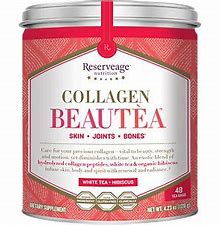
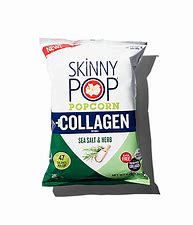
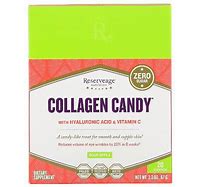
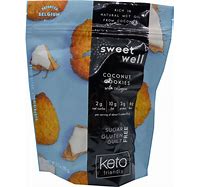
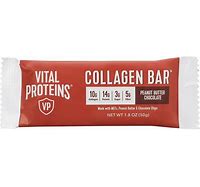



Comentarios